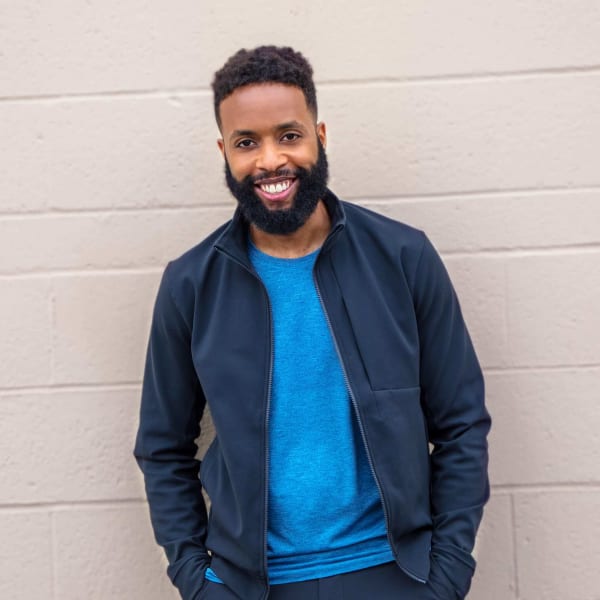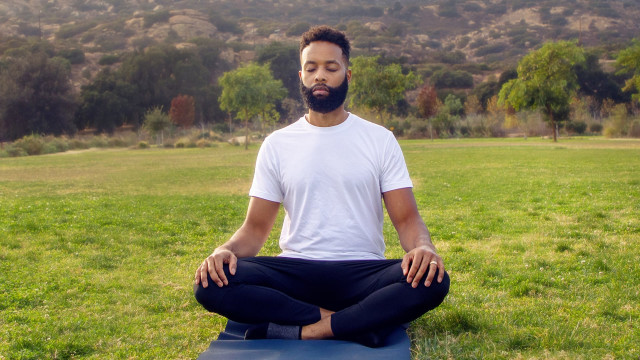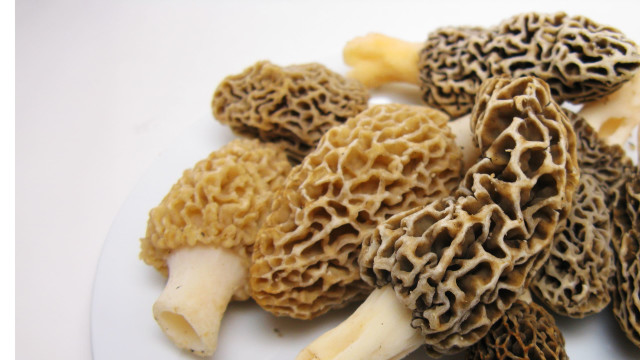Racing Mind? Try Meditation

Discovering meditation improved the life of former middle school teacher Curtis Smith, inside and outside the classroom. As the founder of Moment of Mindfulness (MOM) — a mindfulness methodology and company committed to empowering communities to activate their best intentions through culturally responsive, evidence-based mindfulness tools — Smith is on a mission to promote well-being worldwide.
Here, he talks about connecting to your breath, changing the inner chatter ping-ponging through your mind, and the power of a good night's sleep.
Q: How were you introduced to meditation?
A: I was introduced to meditation about 10 or 11 years ago. I lived in Brooklyn, and my roommate had a book about it. I was always curious, and the book intrigued me enough to learn a little more. I started teaching and found myself leaning on things that would help support me, give me energy, and process different emotions.
I needed to maintain exceptional mental and emotional health because I was dealing with hundreds of kids at a time. It became intriguing to engage in something actionable, something that I had control over, that could consistently help me in my role as a teacher and human being.
Q: What's your top tip for a beginning meditator?
A: Get used to connecting with the breath, being still and sitting with yourself. That may be a foreign concept, which can be challenging.
I know people come in at all sorts of levels of experience with meditation. Still, one of the things that you're going to always come back to is yourself — you have to get used to being with yourself and fighting off the urge to get out of the practice because your mind is going to tell you it's probably not working, that you have other things to do.
Just beginning to train yourself to be OK with that is one of the most effective tools.
Q: What are the greatest benefits you've received from meditating?
A: One of them is a sense of clarity. Before meditating, I never really had a tool to slow down my thoughts. I'm also able to manage stress a lot better, and I'm able to identify my emotions and not be as reaction-focused. I sleep better, so I feel better and have more energy, contributing to all that I do. I've allowed things to flow as they come and be a little more flexible when it comes to life in general.
Q: What does your daily meditation practice look like?
A: When I'm on point, I start the morning with a journal practice, then yoga, then meditation, then a workout for my body, whether that be a ride or a walk. I like to also connect with nature and go outside; I'm blessed enough to be around a couple of different trails, so I like to go outside in the morning time and connect with nature and spend time meditating outdoors.
Throughout the day, I'm connecting with my breath, I'm connecting with my body, and I'm checking in with my feelings, allowing myself to observe my thoughts. I try to keep it simple and incorporate mindfulness in everything I do, not just when I close my eyes.
At night, I do a page of gratitude — that's been a powerful tool — and afterward, I engage in meditation. I always meditate right before I sleep because I have a deeper sleep that way.
Q: What are your favorite topics to focus on in your classes?
A: I love talking about the power of the breath because it's accessible. It connects us all; it doesn't look at religion; it doesn't look at social class; it is what it is.
I also like to focus on the body and help people understand that it can generate energy for our bodies when we turn our attention inward. Taking that time to connect with our bodies is super important. It's an experience — people have to take the time to feel the parts in the body that make the whole.
Loving-kindness is another favorite — what we do with our words and with our energy. A big thing for many people is the inner voice and inner chatter that often clouds our thoughts and our day, so I like to talk about taking control of that inner voice, changing the narrative from within, and understanding the power of what can happen when we do.
Try this course, A Modern Guide to Mindfulness by meditation teacher Curtis Smith, to experience how meditation may benefit your life.
Header photo: AscentXmedia/E+/Getty Images









